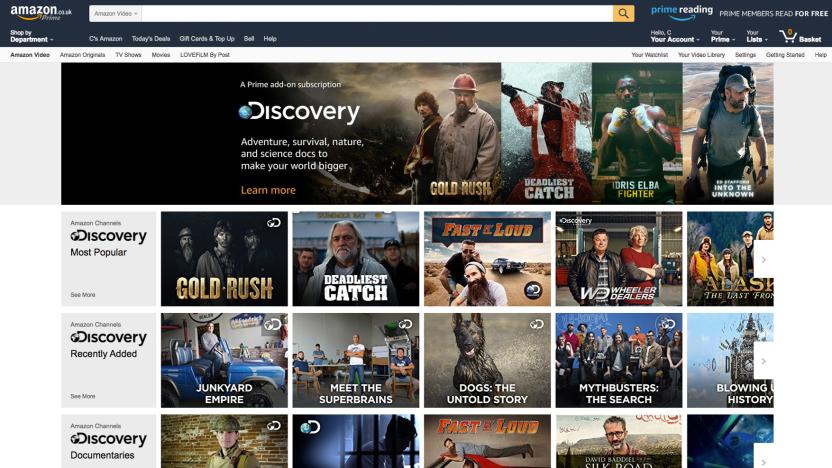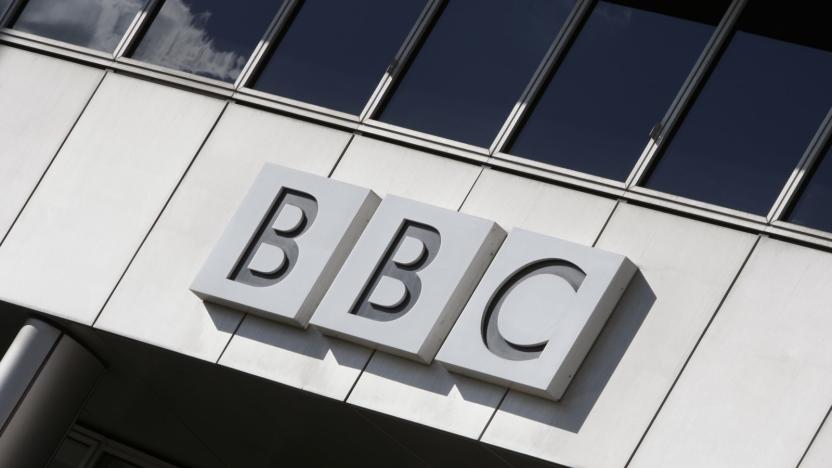licencefee
Latest

Amazon UK's new video options will require a TV licence
Live TV viewers in the UK are supposed to pay a fee that supports services and content from the BBC. Lately, despite changes that closed the "iPlayer loophole," that still doesn't apply to people who only watch streaming video on-demand, so some cord-cutters can avoid the charge. However, the TV Licensing agency is reminding people that as Amazon UK rolls out its new Channel add-ons with live TV, it means that viewers are again responsible for paying the fee. Amazon's packages include channels like Eurosport, ITV Hub+ and Discovery, so as TV Licensing spokesperson Jason Hill explains "If you watch or record live TV, either through your TV or live online through a website, then you need to be covered by a TV Licence...Around 94 per cent of people are correctly licensed so are already covered to watch live TV online." Currently, an annual colour TV Licence costs £147.

iPlayer will soon require a BBC account
The majority of Brits will soon need a BBC account in order to watch iPlayer, listen to iPlayer Radio and use some of the broadcaster's other services. The BBC has said that registration will move from optional to mandatory within the next few weeks. No formal date has been set because the BBC wants to ensure as many people as possible have been given the opportunity to sign up before it flips the switch, and it's started warning users of the impending change online and within its various apps. The BBC says it's introducing mandatory logins to improve its services and user personalisation, but there's also a secondary motivation: Making sure you're paying your TV licence.

BBC iPlayer will require an account starting 'early 2017'
Starting "early" next year, Brits will need a BBC account in order to access iPlayer. The broadcaster says the move is designed to make its services more "tailored" and "personalised," presumably through better curation and recommendations. The BBC already offers an account system, called BBC iD, which comes with a few different benefits such as "favourites" in iPlayer, cross-device pause and resume, and the personalised BBC+ app. A "new sign-in system," said to be more robust and secure, will be launching later this week ahead of the new, mandatory requirement in 2017.

BBC iPlayer will require a TV licence from September
For years, people have used BBC iPlayer as a way to avoid the licence fee. If you watched everything on-demand, rather than tuning in live, it meant you didn't have to pay the age-old subscription. The British government has wanted to close this so-called "iPlayer loophole" for some time and, finally, their wish is being granted. From September 1st, you'll need a licence fee for anything TV-related by the BBC. It doesn't matter which device you use -- smartphone, PC or set-top box -- everything will count.

BBC vows to make more cuts in response to government review
The BBC's Royal Charter isn't due for renewal until the end 2016, but it's already come under fire from the UK government over how it's funded and its perceived public value. Ministers have suggested extending the standard licence fee to include subscriptions and asked whether TV, radio and online services are damaging commercial competitors. This led to Director-General Tony Hall outlining plans for a more "open" BBC last month, but he's back today with a fresh round of commitments (and suggestions) aimed at convincing the public it can do what is asked of it.

BBC faces tough questions in UK government Charter Review
Every ten years, the BBC is given a new Royal Charter which shapes its work as a public service broadcaster. The current Charter runs until the end of 2016 and in preparation, the government has published a consultation with some of its most pressing concerns. Most of them are posed as questions -- the idea being that they'll provoke discussion from the public -- but they also hint at how the BBC could soon be changed against its will.



